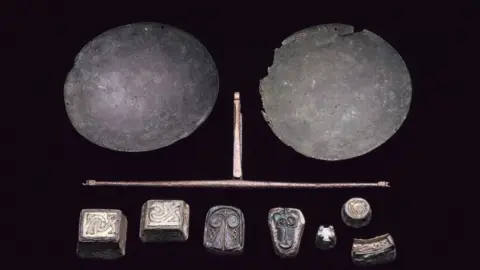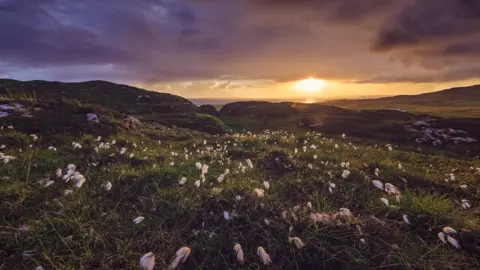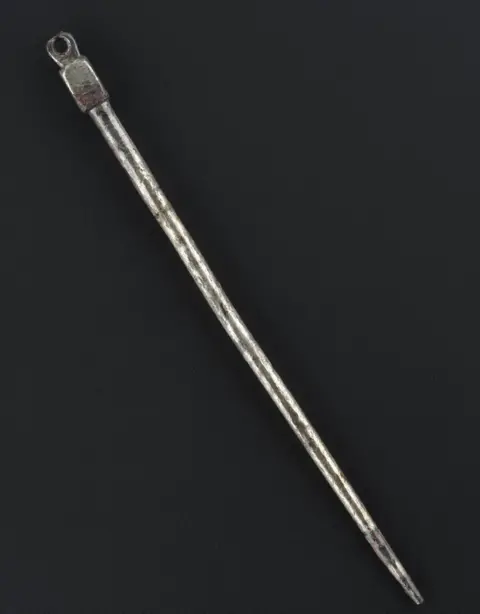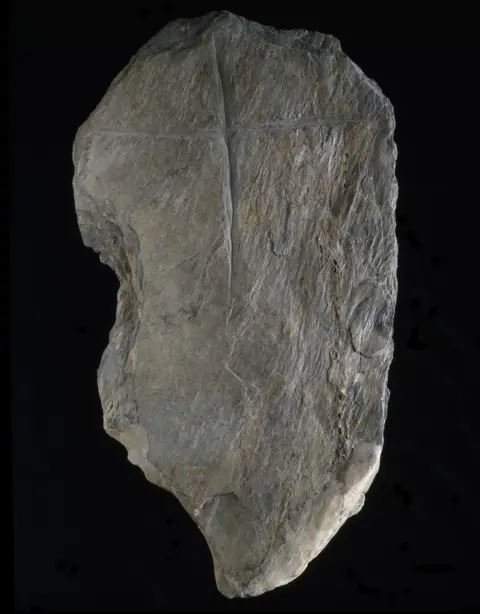Revisiting one of Scotland's rarest Viking burials
 National Museums Scotland
National Museums ScotlandOne hundred and forty years ago Victorian antiquarians excavated a rare Viking boat grave in the Inner Hebrides.
What they uncovered on the coastal meadow, called machair, at Kiloran Bay in Colonsay remains Scotland's single richest male Viking burial site to be found so far.
The finds included weapons, a silver dress pin and a set of scales and elaborately decorated weights for trading.
A boat had been placed over the top of the man's grave chamber and buried next to it was his horse, which had been sacrificed. There was also possible evidence of a human sacrifice having taken place.
"The grave was discovered after rabbits, digging in the soft machair, scooped up some boat rivets," says Prof James Graham-Campbell, an expert on pagan Norse graves of Scotland.
"The landowner - a distinguished soldier called Sir John MacNeill - was extremely proud of the discovery and he took a box of finds to show Queen Victoria, who was staying at Balmoral."
 Getty Images
Getty ImagesKiloran Bay is the richest, and most complex, male Viking grave so far known from Scotland.
The richest female grave is from Westness in Rousay in Orkney. This burial was disturbed when a cow was being buried in 1963, and was only partially excavated.
The Colonsay site was excavated in 1882 and then again in 1884.
Prof Graham-Campbell, who is delivering a Society of Antiquaries of Scotland lecture in Edinburgh's Augustine United Church on Thursday on the grave, says it was well documented for a 19th Century discovery.
The material included carefully drawn plans of the site.
 National Museums Scotland
National Museums Scotland
The rich collection of finds suggest the Viking was of high status, possibly a chieftain.
His weapons kit included a sword, axe, spear and arrows. Only a boat burial discovered in Orkney is known to have such a complete assemblage of weapons.
Prof Graham-Campbell said: "He also had a set of scales and elaborate weights. He was a prime example of a real Viking, well equipped for both fighting and for trading."
 National Museums Scotland
National Museums Scotland
What continues to intrigue archaeologists is the placing of small slabs incised with crosses in the grave chamber.
"It's not what you would expect to find in a pagan burial rite," says Prof Graham-Campbell.
"Colonsay at the time would have been a Christian island. Perhaps one his relations was a Christian and made a token gesture."
